From Amman, we took a day-trip to Jerash, home to a really spectacular set of Roman ruins.
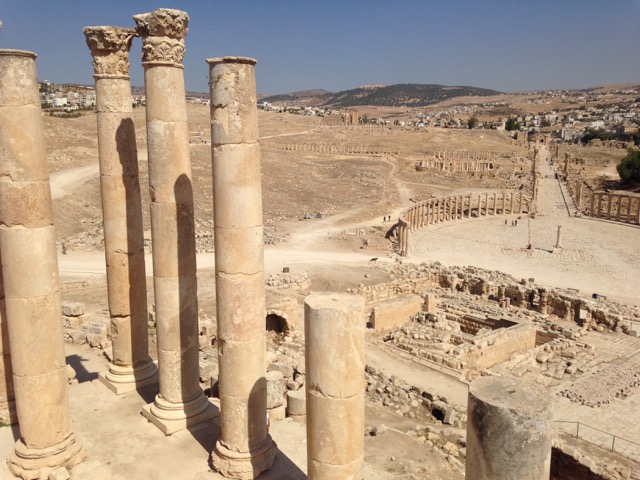
Never heard of Jerash? Don’t worry, neither had we! (And I majored in Classical Civilizations in undergrad; I live for this kind of stuff.)
The site may have been inhabited by humans as early as the Bronze Age (3200 BC – 1200 BC), but the ancient city is thought to have been settled around 333 BC. Around 64 BC, ancient Jerash was conquered for the Romans by Pompey the Great. Jerash grew in size and wealth, peaking in size during the early 3rd century AD, and then eventually declined after a devastating earthquake in 747.
The ruins of ancient Jerash are located in the modern city of Jerash, the capital and largest city in the Jerash Governate, located approximately 30 miles north of Amman. It is a short, uneventful minibus ride. The Jerash bus station is located within walking distance from the ruins, but our minibus dropped us directly in front of the entrance. (It was unclear to us whether this was a legitimate stop or a courtesy stop by a friendly bus driver.)
We ventured out to Jerash the day after we visited the Citadel, and I had been so unimpressed by the Citadel that I was prepared to be underwhelmed. I love ruins, but I worried that perhaps the multitude of incredible ruins we had seen in Egypt and at Petra had ruined me for the rest of the trip.
But, as soon as we made our way through the typical “enter through the gift shop” set-up and caught sight of the ruins, I realized that was not the case. By way of comparison: we spent two hours at the Citadel, including the amount of time it took us to sit down and discuss whether we actually wanted to continue visiting the site, but we easily spent four hours exploring Jerash (loving every moment of it) and could have stayed longer if not for sheer exhaustion and hunger.
The first thing you see if the highly impressive Hadrian’s Arch, constructed for the Emperor Hadrian’s visit in 129 AD.
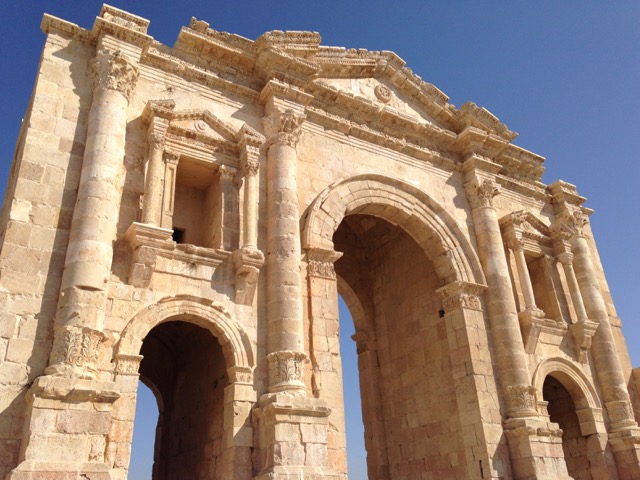
The triumphal arch is a major show-stopper, but one of the things that I found most interesting was the signage providing interesting and extensive details about the restoration work that had been performed upon it.1 Similar signage could be found throughout the site, much to my delight.
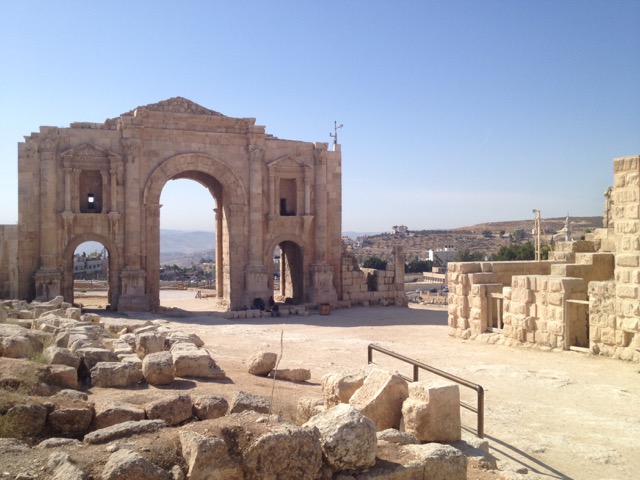
Then we made our way over to the Hippodrome, a stadium for horse- and chariot-racing.
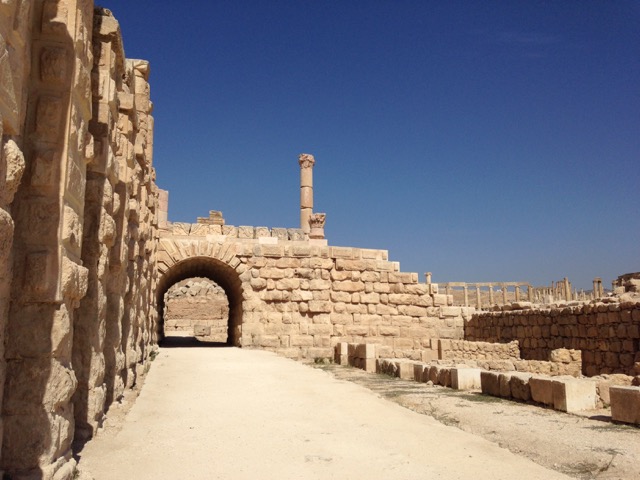
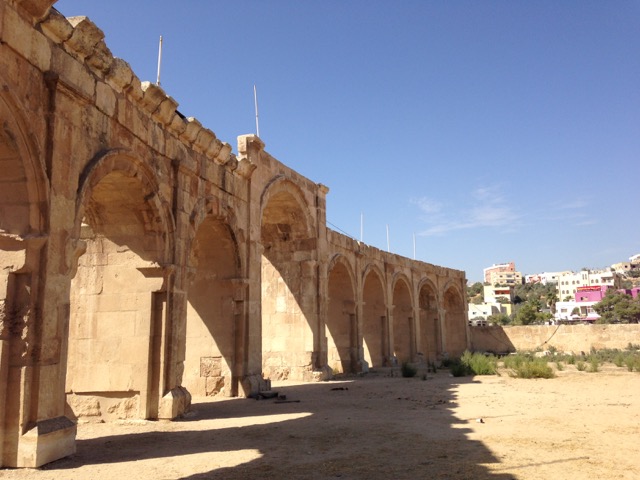
Our next stop was the Oval Forum – truly something to see. This forum is unusual because it is shaped like an (you guessed it) oval. At 90 meters long and 80 meters wide (at its widest point), it is also quite large.
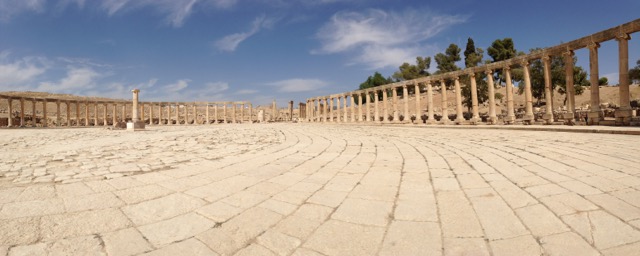
Our guidebook instructed us that we could get the best view by climbing up to the Temple of Zeus, so we did just that.
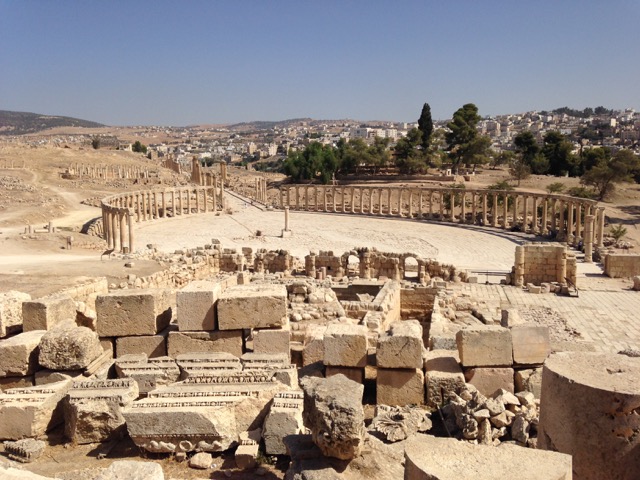
The Temple of Zeus was pretty interesting also. We first explored the Sanctuary of Zeus, located immediately below it.
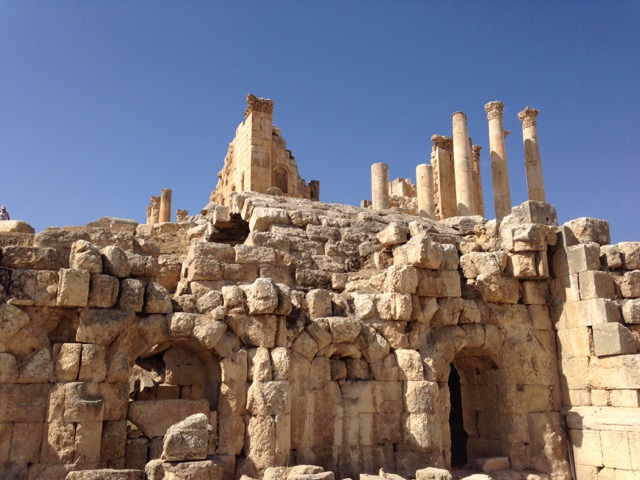
Because the signage indicated the presence of an ancient oracle, I spent a considerable amount of time climbing amongst the ruins, attempting to discern where this oracle might have been located.
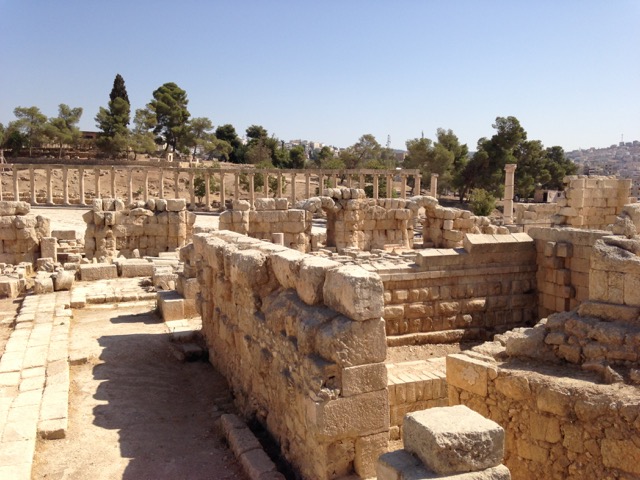
The Temple of Zeus dates to 162 AD and was constructed over the remains of an earlier Roman temple.
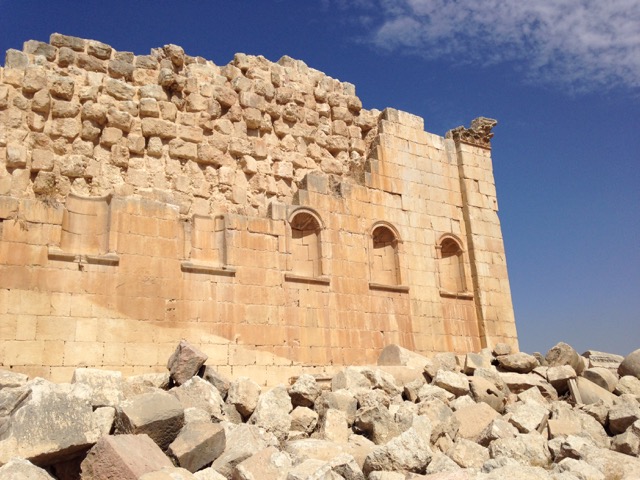
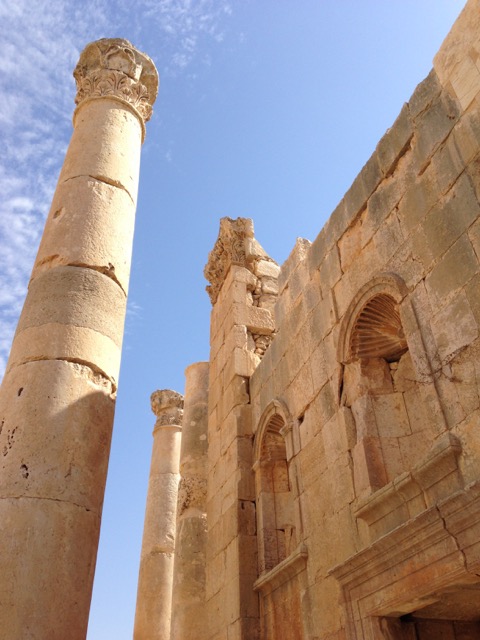
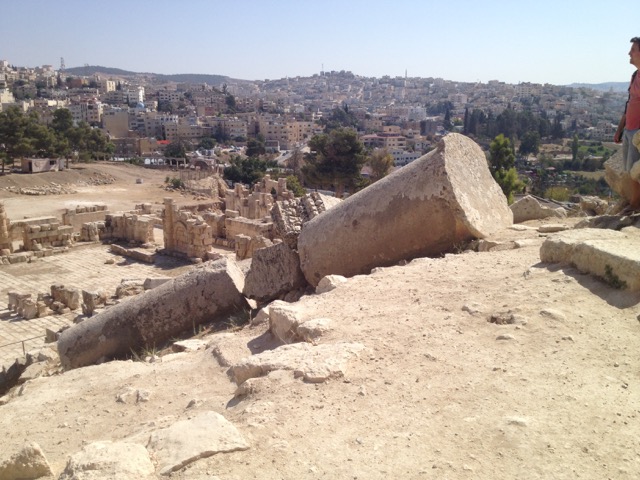
We next explored the South Theater, which once housed an audience as large as 5,000 persons.
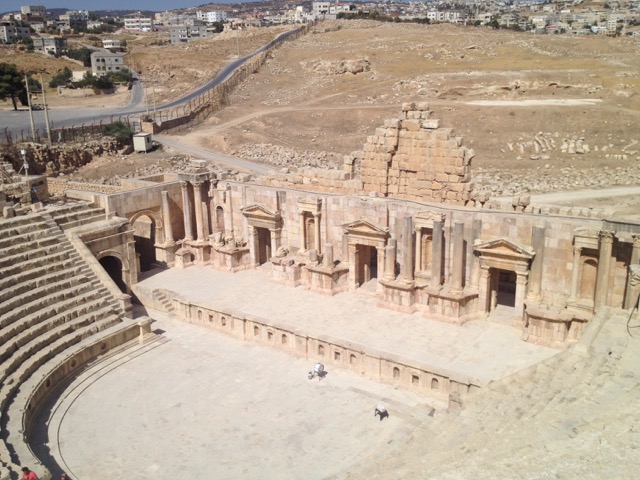
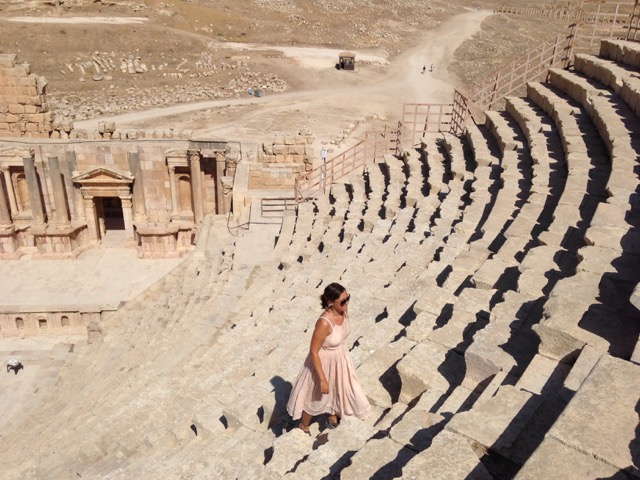
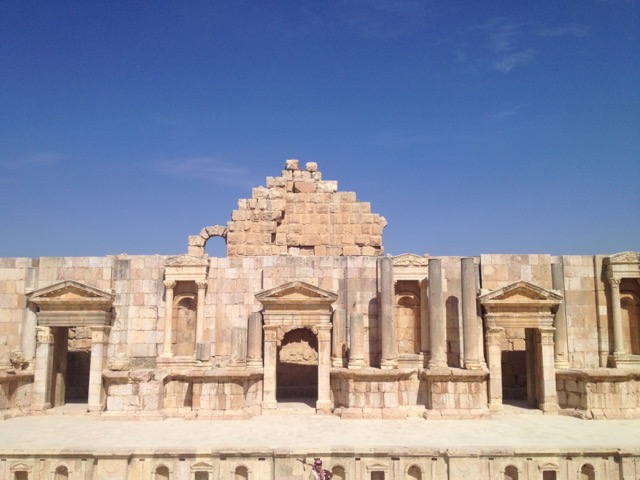
After Christianity became the official religion of the Roman Empire, pagan shrines (like the Temple of Zeus and the Temple of Artemis here at Jerash) were abandoned and cannibalized for the construction of churches. The remains of 15 churches have been found at the site, and our guidebook suggests that there might be more yet undiscovered.
We poked around and looked at some of these ruins — the most interesting thing about them being the intricate tiled floors.
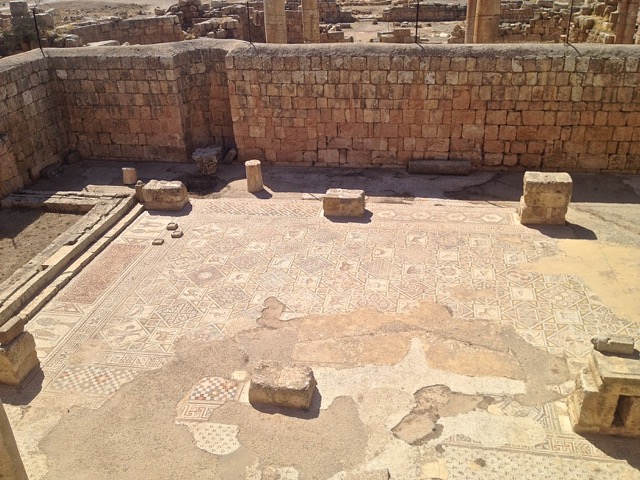
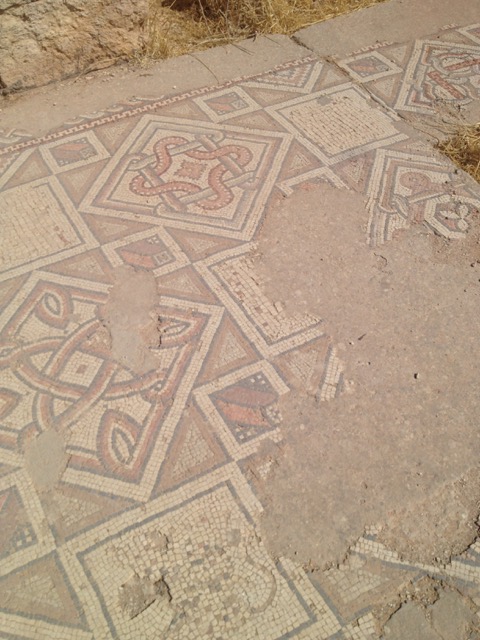
After the churches, we reached the Temple of Artemis. Constructed between 150 and 170 AD, 11 of its 12 columns remain standing.
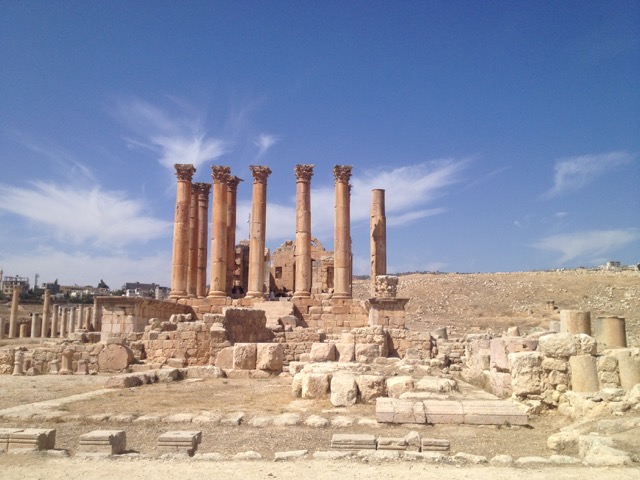
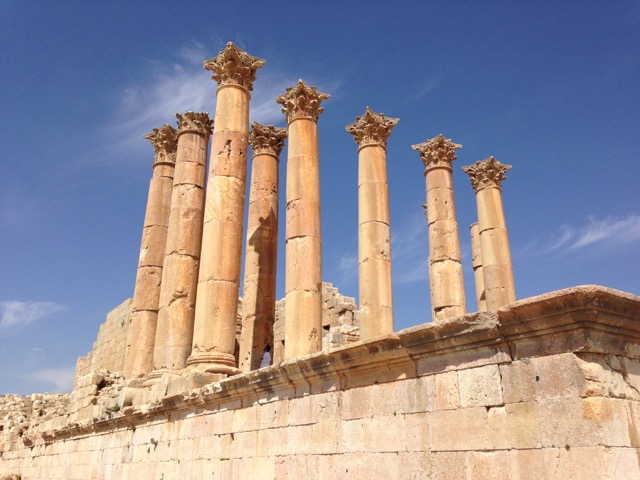
From there, we hit the North Theater, which was likely used for government meetings.
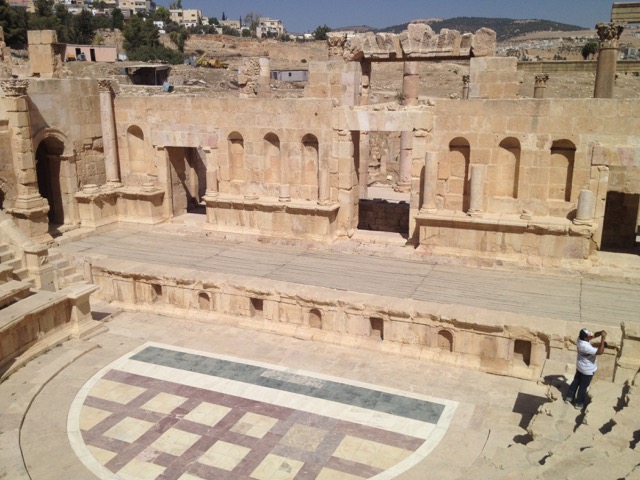
Finally, we reached the end of the ancient city of Jerash, demarcated by the North Gate.
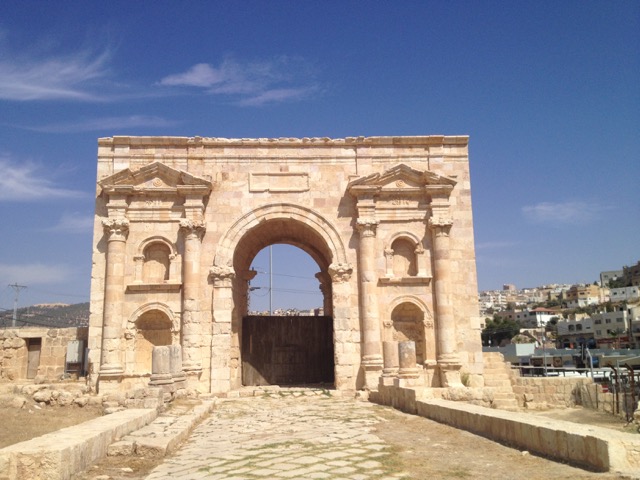
As you can see from the picture above, entry and exit through the North Gate is not permitted – so, even though the bus station was located directly on the other side of this gate, we had to walk the entire way back to the entrance.
Not that it mattered – we hadn’t yet completed our tour of the site! We walked back along the Cardo Maximus, the central artery of town.
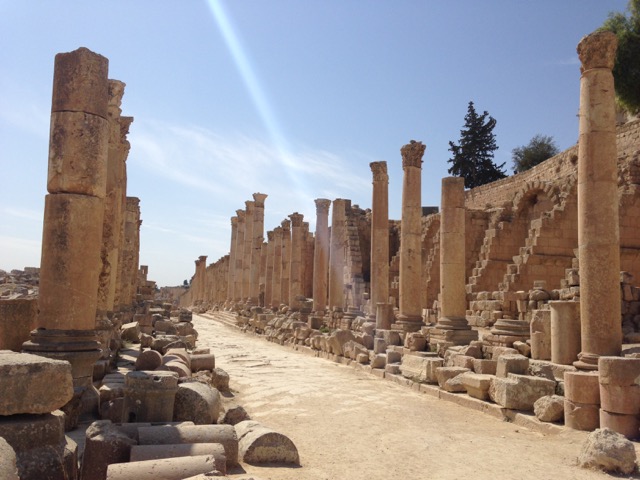
Along the way, we saw the North Tetrapylon, an archway with four entrances constructed where the northern decumanus (one of the main streets) intersected with the Cardo Maximus.
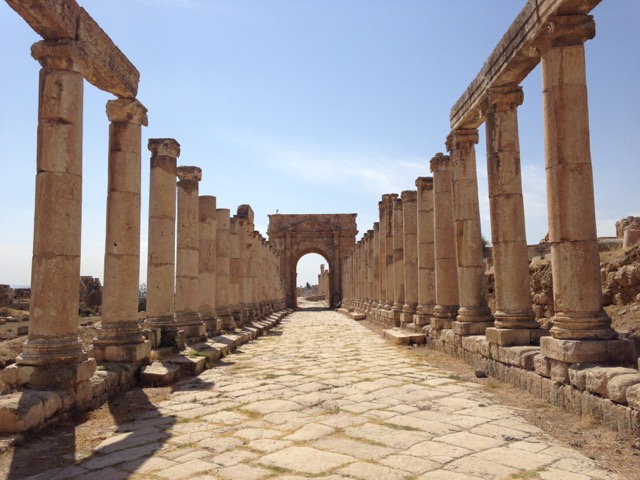
This tetrapylon, which was reconstructed in 2000, is much more interesting than its sister, the South Tetrapylon, which was little more than a pile of rubble.
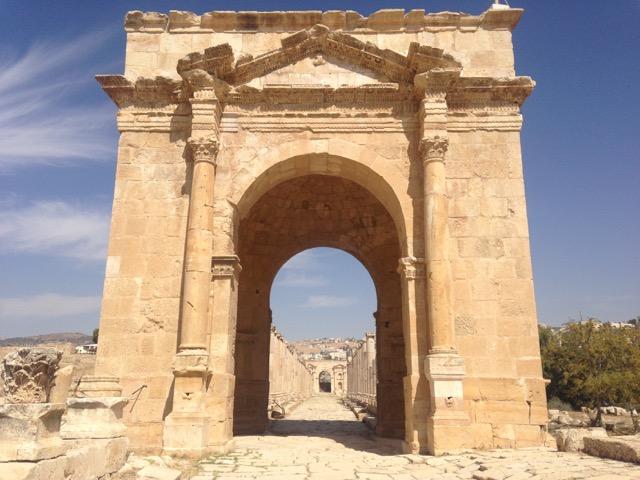
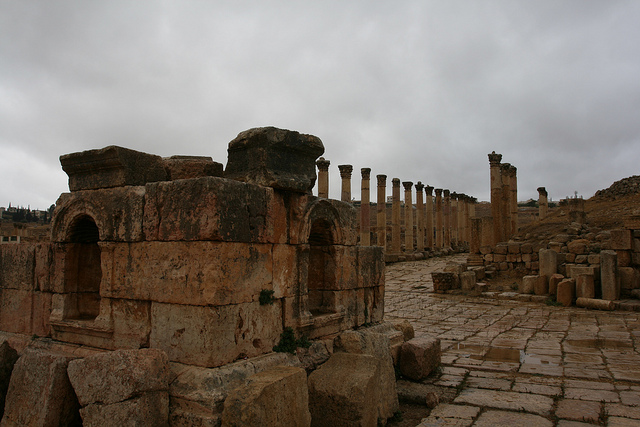
We also spotted the remains of the Western Baths. Interestingly, the Eastern Baths lie outside the gate and in the modern city of Jerash.
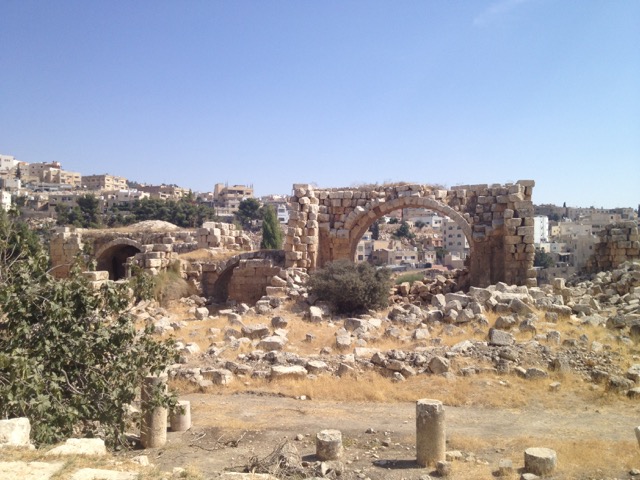
We also saw the propylaeum, or monumental gateway, leading to the Temple of Artemis.
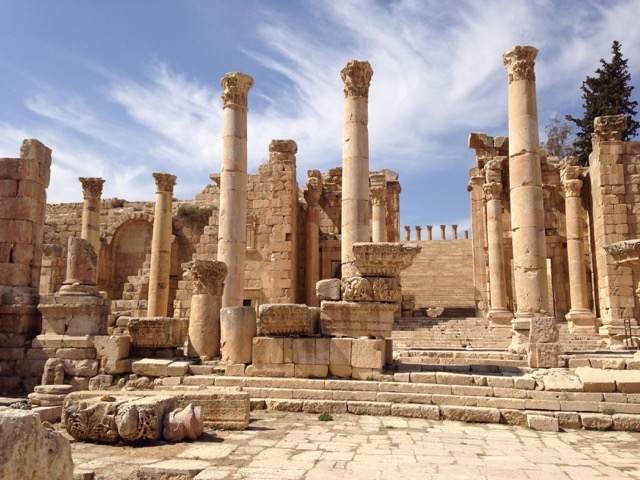
We also inspected the ruins of church.
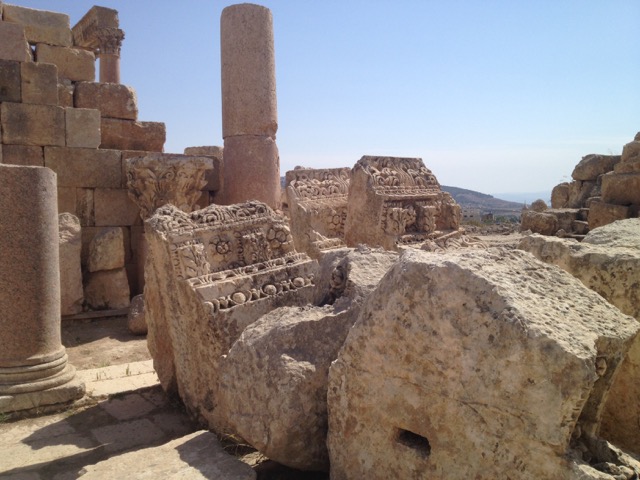
And we saw the Nymphaeum, an impressive ornamental fountain.
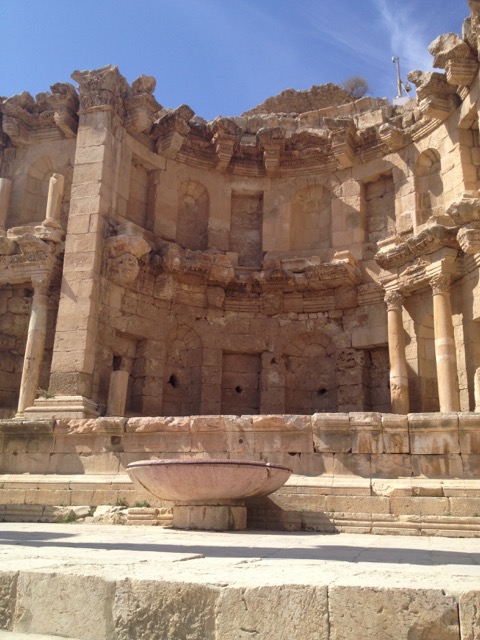
Eventually, the Cardo Maximus deposited us back inside the Oval Forum, and we made our way back through Hadrian’s Arch (no less impressive going than coming). Although exhausted, we planned to make the 20-minute walk to the bus station (basically retracing the route we had just walked, although on the opposite side of the ancient city’s wall) – but then we spotted a minibus gathering passengers near the gate. We hopped aboard and headed back to Amman, gushing the entire way about our amazing day.
1 I went looking for pre-reconstruction images of Hadrian’s Arch to share and the best I could find was this tweet. Weird format, cool pictures.

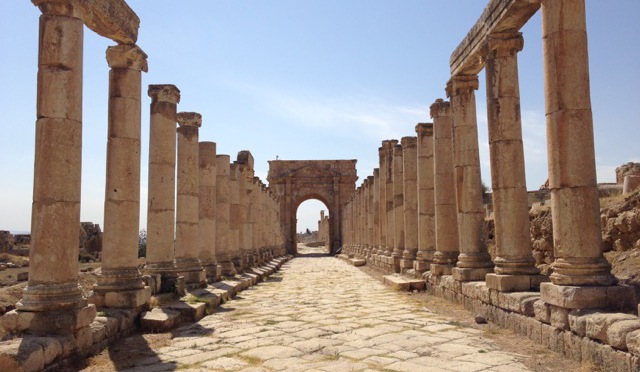

Your excellent photographs of Jarash brought back memories of my own visit there in 1977. I have always felt that Jarash is the best set of Roman ruins in the world (including Greece and Italy), except for the Baalbek ruins in the Bekaa valley, Lebanon.